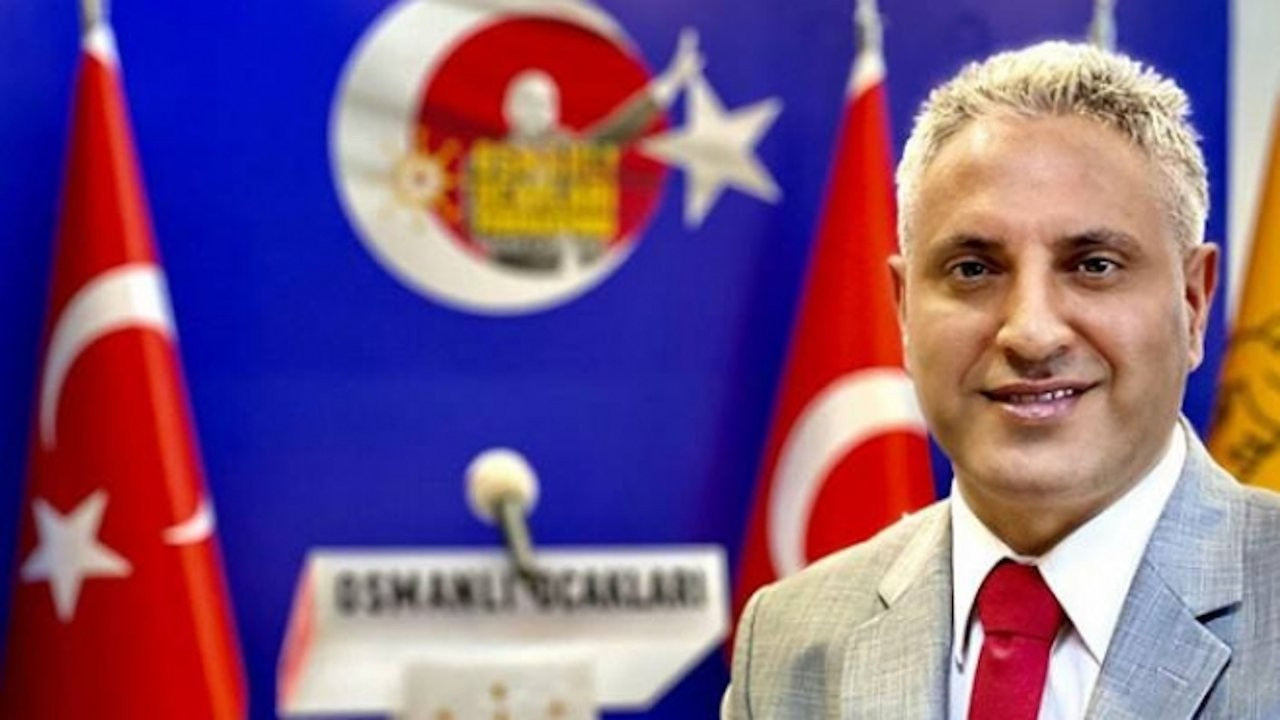Erdoğan's recent attempt to reach out to Kurds: an election investment?
President Erdoğan has been searching for a new non-MHP pillar to lean on. There have been rumors of a ‘state delegation’ holding talks with Kurdish political actors in order to find a new peace process solution. But the Kurdish movement probably did not trust the government, thinking this was an election investment. From what we learned from Karayılan’s statement, the response was negative.
Mehmet Kaya, chair of the Diyarbakır Chamber of Commerce and Industry, said in an interview with Duvar English on Dec. 12, 2020, “We are at the brink of a new resolution (peace) process.”
Kaya claimed in the interview that the ruling Justice and Development Party (AKP) was now aware that it could not continue with their current Kurdish policies and that they were preparing for a new resolution process different from the previous one. He based this claim on negotiations they had made.
Since the interview, I have heard implications from others that a new ‘process’ was intended to be initiated. It was interesting that President Erdoğan said during his July 9 trip to the eastern city of Diyarbakır, “We did not end the resolution process.” He said this at a time when the AKP has been acting as if the resolution process never occurred, trying not to strain its relationship with its nationalist coalition partner, the Nationalist Movement Party (MHP).
Additionally, certain pro-government columnists have periodically written that Erdoğan was inclined to improve his relationship with the Kurds. Abdülkadir Selvi from the daily Hürriyet wrote on July 12, “The Istanbul elections have shown that the AKP cannot win elections without winning over the Kurds. Erdoğan has started to take action again to gain the Kurds.”
However, we have learned that Erdoğan started taking action long before Selvi’s article. There have been a number of attempts that AKP officials seem to be unaware of, as well as the Peoples’ Democratic Party (HDP) officials. One of the PKK leaders Murat Karayılan claimed in a press statement released on June 10 that Erdoğan had sent a delegation to them “for them to declare a ceasefire.” There was no serious denial of this claim from the state or the government side.
Some HDP officials I contacted said that they were unaware of any traffic of this kind and that the HDP was not involved in the process, but they had also heard of some unconfirmed reports.
We contacted Efkan Ala, a former Interior Minister who was a critical person in the 2013-2015 resolution process, to ask the same question, but instead of responding, Ala asked his staff to call us from the AKP Headquarters. He learned what we wanted to discuss, but did not get back to us.
In a conversation with the head of the AKP parliamentary group, Naci Bostancı on the subject, when asked if there had been any recent attempts at a new resolution process, Bostancı responded, “There has been no such development to my knowledge, but I don’t know if someone took such an initiative, what they were thinking and what they did. I have not come across this issue as a topic of negotiation in any way.”
When asked why the AKP was refraining from taking concrete steps on the Kurdish issue, Bostancı said, “I think there are important differences between the PKK’s approach and the HDP's approach; and the approach of other groups regarding what is understood about the Kurdish issue. The PKK sees the issue as a matter of collective identity and expresses it as a matter of collective rights, beyond identity. The HDP is more or less taking a similar approach. The HDP today appears to be the sideline partner of a different alliance. In other words, they’re working with the main opposition Republican People’s Party (CHP) and the opposition İYİ Party. Even though they do not say it openly, even if they act as if this does not exist, everyone knows there is some kind of alliance between them. Thus, what do they say about this issue? Do they have an approach? Has there been any talk of a mediated alliance with the HDP? What steps do they consider with regard to this issue? Do they have a projection? Maybe one should think about it within the ties of this alliance. But what I see is that there’s nothing there.”
The main opposition Republican People's Party (CHP) will be working on its approach to the Kurdish issue in the coming days. But it is not clear for the moment what the content or nature of its approach will be.
When reminded that the government has appointed trustees to HDP municipalities for two terms, and that their lawmakers were imprisoned, Bostancı said, “When there is politics of domination via weapons, there are difficulties in negotiating things on the basis of legitimacy. Who will you accept as legitimate? If you look at the majority of the population, there are these kinds of concerns about the HDP: This party appears to have a close relationship with the PKK. I’m talking about the perception in society. On the other hand, legally, if this is not proven, then it remains at the level of perception. This determines the political discourse and shapes certain attitudes. Perhaps disengaging the PKK will lead to an easier solution. It can play a role in changing people’s perspectives. But the presence and the ghost of an armed organization take the situation to a very different place.”
Bostancı does not believe that a process similar to the previous one is possible. He thinks this has nothing to do with their alliance with the MHP. “The end of the previous one in 2015 was not a move or will of the AKP. Therefore, the AKP will not do anything involving a similar process again. We know that the MHP also acts with a mentality of nationalism that cares about Turkey’s social integration. Their own declarations are in that direction. The MHP’s main line is a sensitivity to the PKK.”
Is that really the case? Let’s continue with a short anecdote.
About four or five months ago, I met a Kurdish deputy from the AKP and we talked for a while. He said, “MHP leader Devlet Bahçeli has blindfolded all of us and he leads us wherever he wants.” He said they wanted to meet with President Erdoğan to convey their frustration as Kurdish lawmakers within the party and their discomfort with being treated as “stepchildren,” but have not been able to meet him. When I called the same deputy in mid-August and asked if they had the meeting, he said that they were still waiting and thought they could be given an appointment after the anniversary of the Victory of the Battle of Manzikert (Malazgirt) on Aug. 26.
If AKP's Kurdish lawmakers have the appointment they have been waiting for months for and meet with Erdoğan, they will demand certain “investments” in the region that will strengthen their hands against the HDP and perhaps the CHP, and some warm messages on the political discourse level. “As a matter of fact,” said the AKP deputy, “President Erdoğan did say positive things during his visit to Diyarbakır.” But the fact is that AKP Kurdish deputies want an “initiative” that would ensure that their heads are not bowed before the Kurdish electorate as the elections approach. However, they are aware that Erdoğan is not the only decision maker in meeting even their smallest expectations, and that the approval of other coalition partners, especially Bahçeli, is required.
This is the reason that a segment of the AKP, especially Kurdish lawmakers, still believe that if they were freed of the “MHP load,” the party could rise again, make pledges that would please everybody and return to their golden era.
A segment of AKP members, however, regard the MHP as their sole basis for survival. They’re not wrong. The MHP, which is not officially “the government,” can do what it wants because it is free of all the scandals of the government and does not need to answer to anyone for them. No one can say to them, “Well, you’re in power, why didn’t you prevent this? Why didn’t you do that?” In this respect, the MHP takes on the role of the political striking force of the AKP in exchange for its free-of-accountability position.
However, contrary to what Bostancı said, Erdoğan is clearly engaged in a compulsory, not voluntary, union with his coalition partner, which in turn limits his own political range and prevents him from dismissing the Interior Minister. It is known that Erdoğan is quite close to the segment that sees the MHP as a burden to the AKP, but he cannot afford to burn bridges with the MHP.
The MHP alone is no longer enough to save the AKP. Therefore, the AKP has no choice but to collect power from other areas.
For this reason, one can draw the conclusion that Erdoğan or his aides have been making “peace process trials” over the past year in order to search for a formula that will not make him lose the MHP but at the same time provide him with a new pillar to lean on.
According to the information I gathered, a “state delegation,” with Erdoğan’s knowledge, held talks with some actors in Kurdish politics. Through these actors, an attempt was made for “a different solution process than the previous one,” just as Mehmet Kaya, chair of the Diyarbakır Chamber of Commerce and Industry, said some nine months ago. But the Kurdish movement probably did not trust the government, thinking this was an election investment. From what we learned from Karayılan’s statement, the response was negative.
From what I’ve gathered, this process is not entirely over, but is at a standstill. Thus, one can say that there are not one but two “peace processes” in the refrigerator. The first one was refrigerated in 2015 by Erdoğan. The second one, during the past year, was probably put in the freezer because of opinions or doubts that the AKP no longer represents the state.


 HDP shouldn't be shut down, says Islamist who filed for HDP's closurePolitics
HDP shouldn't be shut down, says Islamist who filed for HDP's closurePolitics